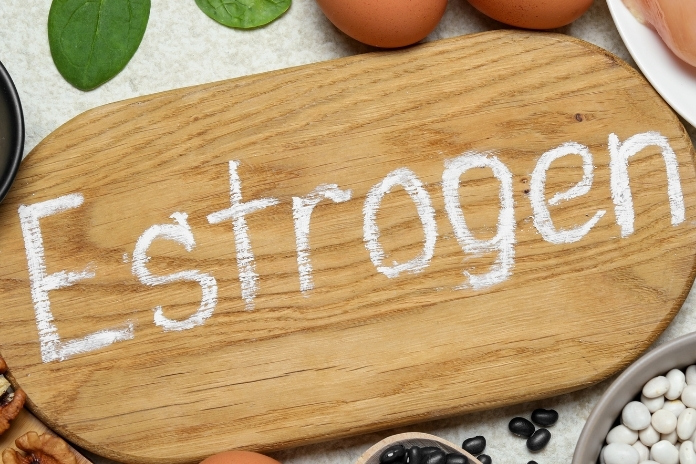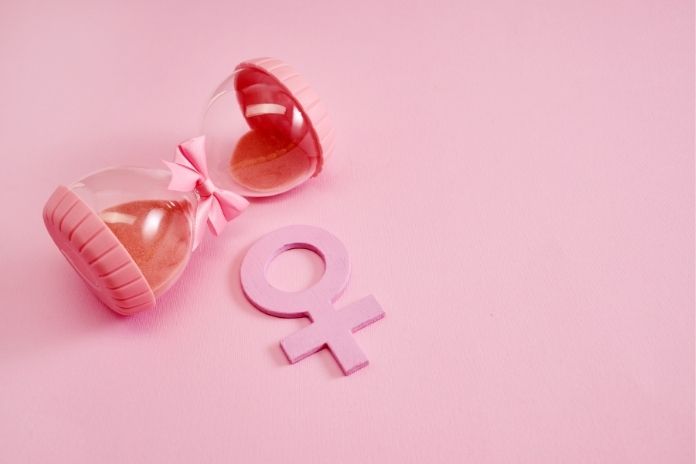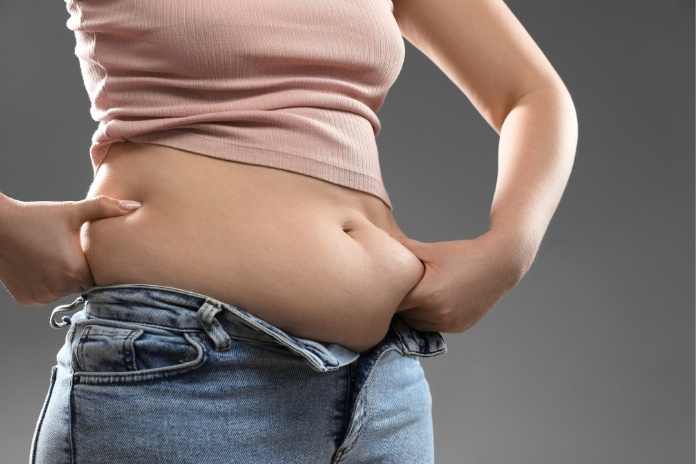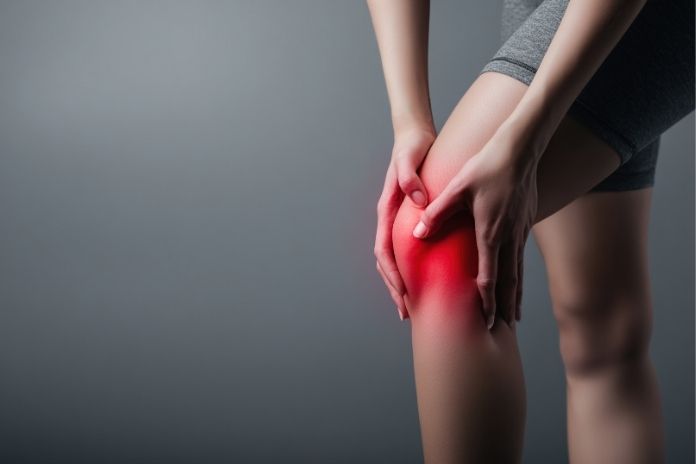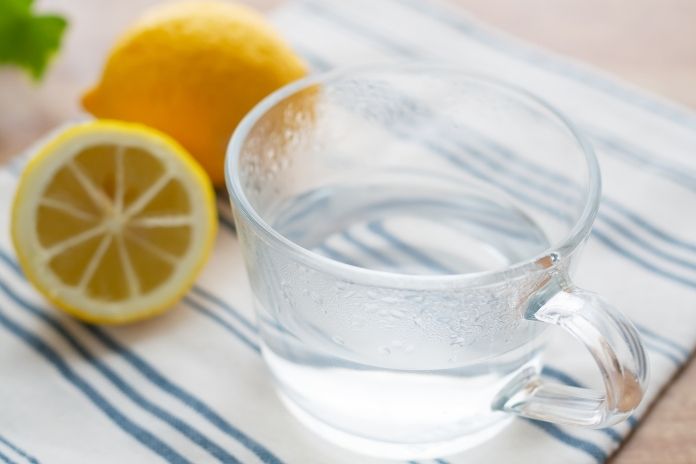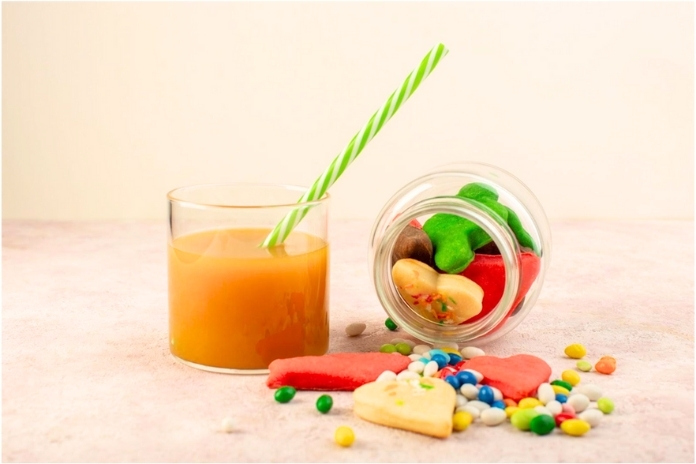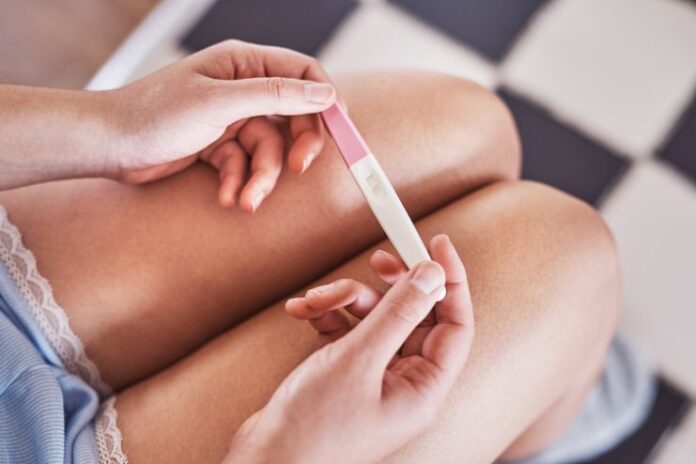Many people think that getting your period prevents getting pregnant, but is that the case? The answer isn’t as easy as you think—it’s one of the most prevalent period myths.
Understanding the science underlying the menstrual cycle will help you grasp the topic of pregnancy during menstruation, which causes a lot of uncertainty. Although getting pregnant while on your period is less likely, it is still possible.
Even if you are bleeding, there is a brief window of time during which fertilization may occur, and sperm can remain inside the female body for up to five days, depending on when you ovulate. It’s all about timing. Grasping the inner workings of your menstrual cycle is essential, whether you’re planning to avoid pregnancy or hoping to conceive.
To help you make decisions regarding your reproductive health, we’ll debunk common misconceptions, examine how the menstrual cycle works, and reveal when the likelihood of becoming pregnant is at its highest.
Read More: Best Non-Toxic Period Products for a Healthier Cycle: Eco-Friendly & Safe Alternatives
How the Menstrual Cycle Works
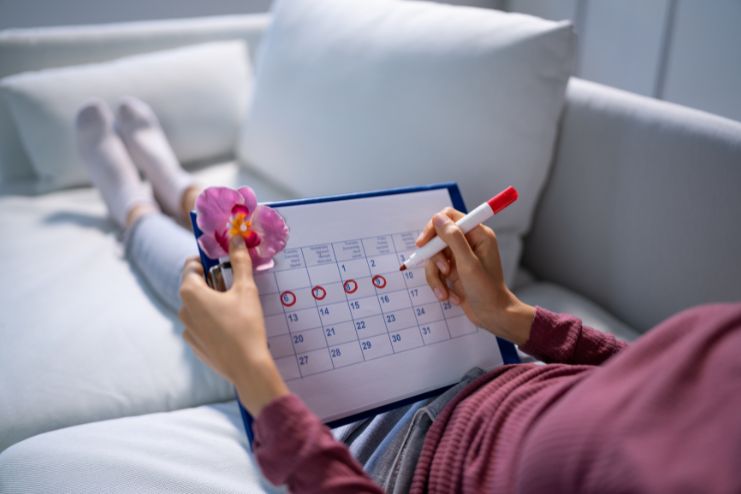
Your menstrual cycle is one way your body prepares you for a monthly pregnancy. Understanding how the process unfolds is essential, as it allows you to manage period symptoms more effectively, recognize potential issues, and either support your efforts to conceive or prevent pregnancy.
Menstrual Cycle: Four Phases?
Changes in the level of hormones within your body drive your menstrual cycle. Your reproductive tract’s organs react differently depending on your hormones. The following are the particular things that happen during your menstrual cycle:
The Menses Phase: The menstrual phase begins on the first day you start bleeding. If pregnancy hasn’t occurred, your body begins a natural process where the uterine lining breaks down and exits through the vaginal canal. While many individuals experience bleeding for three to five days, having a period that lasts between three and seven days is usually considered normal and not a cause for alarm.
Follicular Phase Explained: Starting from the first day of menstruation, the follicular phase spans approximately 13 to 14 days. During this time, shifting of hormone levels stimulates the development of follicles on the ovaries and promotes the thickening of the uterine lining in preparation for possible pregnancy. Usually, a single follicle matures fully and transforms into an egg ready for ovulation.
Ovulation Phase: In a 28-day menstrual cycle, the ovulation usually occurs around the midpoint, on day 14. Your ovary releases its egg when luteinizing hormone (LH), another hormone, suddenly rises. Ovulation is this event.
The Luteal Phase: This stage occurs roughly between days 15 and 28. After the ovary releases the egg, it moves through the fallopian tubes to the uterus. Progesterone levels increased to help your uterine lining for your pregnancy. You become pregnant if the sperm fertilizes the egg and it fuses with the wall of your uterus (implantation). If fertilization doesn’t happen, levels of estrogen and progesterone decline, signaling the body to shed the built-up uterine lining, which results in menstruation.
Read More: Drink These 5 Smoothies to Ease Period Symptoms and Boost Hormonal Health
So, Can You Get Pregnant on Your Period?
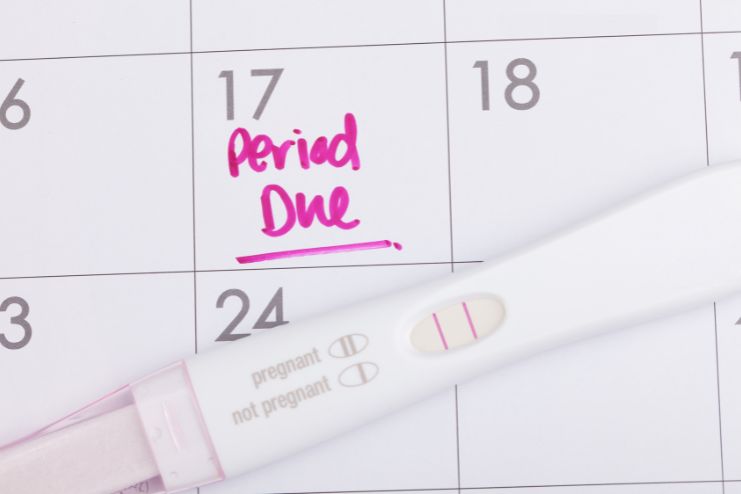
People have a lot of misconceptions about when it’s possible to get pregnant, and they may spread them.
- They might assure you that your first sexual experience won’t result in pregnancy. Not true.
- You may have heard that breastfeeding prevents pregnancy. Not true.
- Someone may have told you that getting your period will prevent you from becoming pregnant. False as well.
Regardless of what you may have been told or heard, let me say again: Having unprotected sex during your period can result in pregnancy. Probably it’s not the best time for you to conceive. However, it is possible.
Ovulation, or the release of an egg, is the most fertile point of your cycle and the window when you have the best chance of becoming pregnant. Usually, that occurs halfway between phases.
Around the time of ovulation, you are at your most fertile. Even if you have sex days before you ovulate, you can still become pregnant because sperm can survive in your body for up to five days, even though the egg only lasts 12 to 24 hours after being released.
What is your chance of becoming pregnant when on your period? It relies on several variables, including:
- If you used birth control or not
- How long your menstrual cycle lasts
- How long your menstrual cycle is
- When you had a sexual encounter
Although it can vary from cycle to cycle and woman to woman, you are typically fertile between days 11 and 21 because the average menstrual cycle lasts 28 to 30 days. Given that sperm can survive for up to five days following sexual activity, you might be able to conceive on day eleven if your menstruation lasts five to seven days and you have sex near the end of it.
Situations Where the Risk Increases
Suppose you have intercourse while on your period; you probably won’t get pregnant. Your chances of becoming pregnant during this period decrease because you haven’t ovulated yet. There are certain exceptions, though. It covers a woman’s normal cycle period of around 28 to 30 days.
If your cycle is shorter, say every 21 to 24 days, you are ovulating early in the cycle. Due to early ovulation, you can have intercourse at the end of your cycle and may conceive four or five days later because the sperm can remain inside you for five days.
Although the chances of getting pregnant while on your period are very slim, they do exist. If you are attempting to conceive, now is not the time to have sex.
Yes, you can become pregnant immediately following your period since you are entering your fertile window. The reproductive window is typically between Day 11 and Day 21 of a regular cycle, which happens every 28 to 30 days.
Keep in mind that sperm have a five-day lifespan. Your fertility window is getting closer if you have sex immediately after your period (bleeding time), which lasts five to seven days.
Read More: How Golden Milk (Turmeric Latte) Can Help Regulate Your Period
Common Myths Debunked
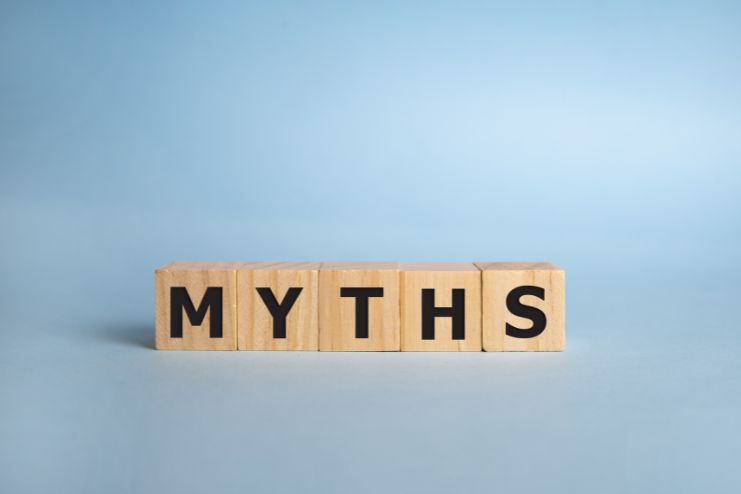
There are many myths surrounding period sex and pregnancy, and it’s time to clear the air with facts, not false confidence.
Myth 1: When you’re on your Period, you shouldn’t have Sex
Fact: Myths about period sex are widespread. According to a 2018 study by the Kinsey Institute Condom Use Research Team (KI-Curt) and Clue, just 15% of participants have regular sex during their periods. Of those surveyed, 41% said they exclusively concentrated on arousing their partner, while 49% claimed they avoided any genital sexual action.
Sexual activity during menstruation is considered normal, safe, and even advantageous by experts. Some claim that having intercourse can ease their menstrual cramps, and the menstrual blood can serve as natural lubrication. During your period, your uterus contracts and produces hormones that may cause cramping.
Myth 2: When you are on your Period, you cannot go swimming
Fact: You certainly can! Always use a period swimwear or a tampon in place of a pad. Similar to period panties, period swimwear is quick to dry, leakproof, and, depending on the manufacturer, can absorb as much blood as three tampons.
Myth 3: Blood from Periods is Filthy and Repulsive
Fact: Blood, vaginal fluid, and fluid and cells expelled from the uterus endometrial lining make up menstrual blood. Many cultural beliefs and self-isolation might result from the assumption that menstruation is very unclean or something to be very ashamed of.
Myth 4: Getting pregnant while Menstruating is impossible
Fact: Although less likely, it is still possible! The length of the menstrual cycle, the duration of your period, the time you have intercourse, and the usage of contraception all play a role. It’s much simpler to remember those facts when you track your period, and a specialized tracking system takes care of a lot of the work for you while giving you useful cycle information.
Read More: Why Your Periods Might Stop: Understanding Amenorrhea
Safer Sex Tips & When to Use Protection
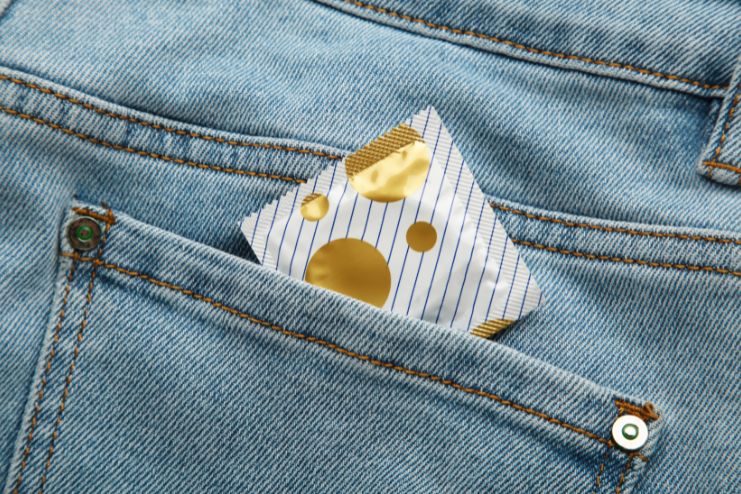
It can be frightening if you’ve never tried having sex while you’re menstruating. There’s no reason, though, that you can’t have as much sex during your period as you would otherwise if you take the appropriate safety measures. Here are some safe and mess-free tips to follow if you choose to have sex while on your period.
Take Precautions: To avoid unintended pregnancies and the transmission of STIs, it’s crucial to practice safe sex even when you’re menstruating. Since STIs and pregnancy can still occur, health experts advise using condoms for prevention.
Try having Sex in the Shower: When you’re on your period, there’s no better time to attempt shower sex. It is because creating a mess isn’t as stressful. There are a few strategies to improve your shower sex experience if you’ve had trouble enjoying it in the past.
Prepare Towels: Put down a washable blanket or towel to keep the bed linens from getting stained.
Think about using a Disk or Menstrual Cup: Some alternative period hygiene devices, such as menstruation cups and discs, can remain in place during intercourse. You may feel a little more at ease about having sex while on your period if you choose this safe option.
Read More: What Your Period Blood Color Says About Your Health
Conclusion
Pregnancy during your period is rare, but it is possible, particularly if your cycle is short or irregular. There is a probability of fertilization even during or after menstruation if ovulation occurs earlier than anticipated.
That’s why relying on your period as a form of birth control is risky. Regardless of the day of your cycle, always wear protection if you don’t intend to become pregnant. Your best line of defense against STIs and unintended pregnancy is a condom, hormonal contraception, or other practical approach.
“Be informed and stay safe because your body doesn’t always follow the rules regarding fertility.” Making empowered, knowledgeable decisions regarding your sexual health requires an understanding of your menstrual cycle and how it impacts your fertility. Don’t rely on luck; be wise and cautious.
References
- https://www.thewomens.org.au/health-information/periods/periods-overview/about-periods
- https://womenshealth.gov/menstrual-cycle/your-menstrual-cycle
- https://www.yourperiod.ca/normal-periods/menstrual-cycle-basics/
- https://www.hopkinsmedicine.org/health/wellness-and-prevention/menstrual-cycle-an-overview
- https://www.betterhealth.vic.gov.au/health/conditionsandtreatments/menstrual-cycle
- https://my.clevelandclinic.org/health/articles/10132-menstrual-cycle
- https://americanpregnancy.org/can-i-get-pregnant-if/can-you-get-pregnant-on-your-period/
- https://health.clevelandclinic.org/can-you-get-pregnant-on-your-period
- https://www.clearblue.com/am-i-pregnant/get-pregnant-during-your-period
- https://americanpregnancy.org/can-i-get-pregnant-if/can-you-get-pregnant-on-your-period/
- https://www.nhs.uk/conditions/periods/fertility-in-the-menstrual-cycle/
- https://www.clearblue.com/how-to-get-pregnant/period-myths
- https://www.everydayhealth.com/news/it-safe-have-sex-during-your-period/
- https://www.businessinsider.com/guides/health/sex-relationships/period-sex
In this Article





